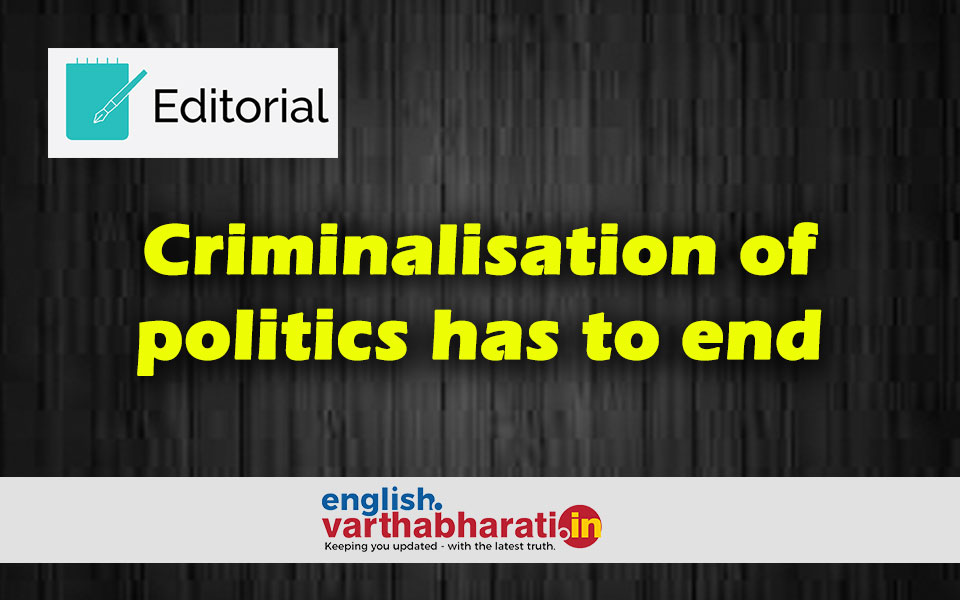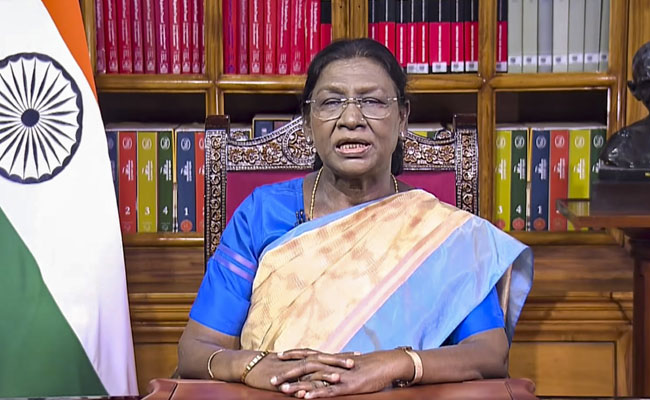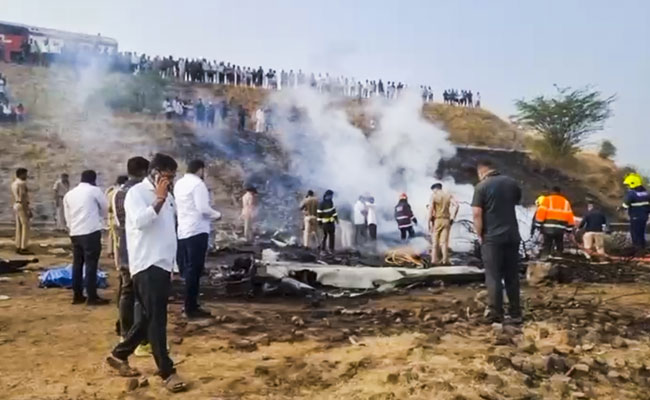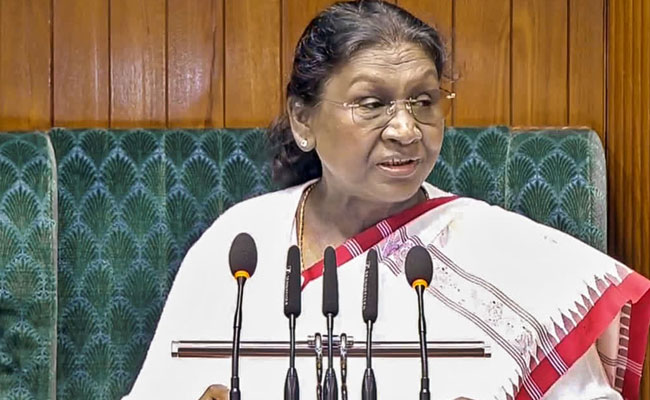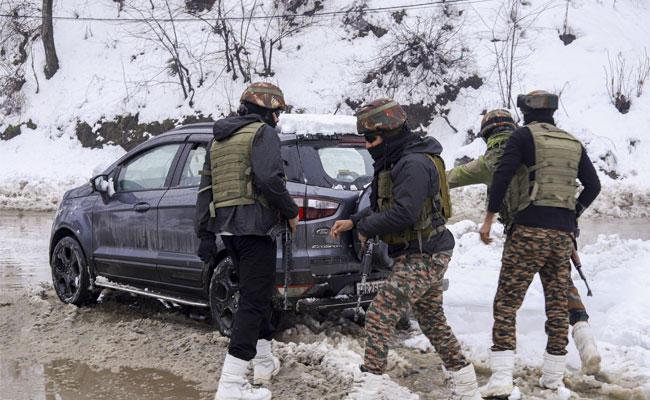Politics has come a long way from the one that was practiced by Gandhi, Nehru and AKG. It has been at least three decades since money and muscle power has been dictating the terms of politics in the country. Our assemblies have become safe haven for criminals after globalisation, liberalization and privatization set in.
According to a report by the Association for Democratic Research one third of our politicians in both houses are facing serious criminal allegations against them.
About 35 % of the chief ministers are facing serious criminal cases. This news is very detrimental to India's democracy. In this context the Supreme Court has said the Parliament should draught a policy that would discourage people with criminal cases or background from contesting in the elections. General or Assembly Elections being Far Cry people are finding it difficult to even contest the local elections without the power of money and muscle in this background Supreme court's ruling is more than welcome.
Everybody Talks about decriminalising the politics. But nobody has the solution to achieve this goal. Which is why the Supreme Court has thrown this ball into the court of the Parliament.
People with backgrounds in real estate stone and sand mafias are easily winning elections. This is causing massive disturbance in the tectonic plates of democracy. This is the reason supreme court has to enter into the scene and protect the sanctity of a democratic process. Is criminalisation of politics has occupied Panchayat level elections to Parliament level elections as well. People spend crores to contest urban body elections such as panchayat or municipality. One cannot even imagine how much would the general and assembly election candidates spend on their campaigning and related expenses.
According to an estimate, on an average, each candidate could be spending more than Rs 30 crore on the least possible estimate. A liberal estimate would shock the sane people into distress.
The one who spend money like water will ensure they make at least 100 times more than what they were forced to spend to win elections once they assume power. Majority of them would most certainly have criminal backgrounds. It is not easy to get them on track. During the government that ruled Karnataka between 2008 and 2013, people with criminal background occupied vantage positions. The ones who ran Ballari republic had posed a serious threat to democratic mode of administration in the state. This mining mafia had used its office and power to cover its illegal activities. This is not restricted to Karnataka alone. Such mafias control the Democratic institutions across India and in some cases across the world too. Having tasted the heady power, this mafia tried to alter electoral process and win last elections. Even now they try to buy over elected representatives to upset the current government. This being the reality, cleaning up politics is not an easy task even when the Supreme Court says so.
When all houses and assemblies are filled with elected representatives with criminal background, it's not only difficult to control their existence but also the entry of more such persons into mainstream politics. Drafting a policy is just one part of the challenge. It is essential to bring integrated change in electoral politics. People or voters also have a duty of rejecting candidates with criminal backgrounds. Political parties should deny tickets for candidates with criminal background.
This is not just the question of politics but a larger issue of national interest as well. Today this country needs clean politics more than ever. The poorest of the poor, farmers, Dalits, and common people have strived hard to protect this country's democracy. People will have to take proactive approach towards cleaning up the politics of this country. This problem will never be remedied by elected representatives, if we leave it to them. People will have to ensure mining and sand mafia beneficiaries, real estate thugs and evil communal politicians do not enter the temples of democracy.
People have to be made aware of their responsibility in this regard.
Let the Truth be known. If you read VB and like VB, please be a VB Supporter and Help us deliver the Truth to one and all.
New Delhi (PTI): President Droupadi Murmu on Wednesday said the world saw the valour of Indian armed forces through Operation Sindoor when they destroyed terror camps on the strength of their own resources and asserted that any terror act will be responded with decisive action.
"India has proved that power can be used with responsibility and wisdom. The world has seen the valour and courage of Indian armed forces through Operation Sindoor," Murmu said in her address to both Houses of Parliament, marking the beginning of the Budget Session.
"Our nation, on the strength of our own resources, destroyed terror camps. My government sent a message that any act of terror will be responded to with resolute and decisive action," the President said, amid thumping of desks by Prime Minister Narendra Modi and other parliamentarians.
Murmu said the suspension of the Indus Water Treaty was part of India's fight against terror.
"We are also working on Mission Sudarshan Chakra to further strengthen national security," the President said, adding that security forces have also taken decisive action against Maoist terror.
Following Operation Sindoor, she said, the trust on Indian defence platforms has increased.
Murmu further said her government was committed to social justice in the country.
In the third term of the government, she said, work is being done to further empower the poor, and social security benefits are available to nearly 95 crore citizens now.
"My government is committed to true social justice," she said, adding that 25 crore Indians moved out of poverty in the last 10 years.
The President also said the government has been successful in tackling corruption and scams, and ensuring proper use of public funds.
"For India, the end of the first 25 years of this century has been filled with several successes, proud achievements and extraordinary experiences. In the last 10-11 years, India has strengthened its foundation in every sector," she said.
Lauding India's celebration of the 350th martyrdom day of the ninth Sikh guru, Guru Tegh Bahadur, and the country's tribute to revered tribal leader and freedom fighter Birsa Munda on his 150th birth anniversary, Murmu said, "when the country remembers the contribution of its ancestors, the new generation gets inspiration, which further speeds up our journey towards Viksit Bharat (Developed India)."
"The country celebrated the 350th Shaheedi Diwas of Sri Guru Tegh Bahadur Ji. During the 150th birth anniversary of Birsa Munda, the entire country paid him tribute and remembered his contribution to the tribal community," the President said.
"The events related to the 150th birth anniversary of Sardar Vallabhbhai Patel further strengthened the sense of Ek Bharat, Shresht Bharat (One India, Best India). The entire country became witness to how Bharat Ratna Bhupen Hazarika's birth anniversary celebrations filled the country with music and a sense of unity," Murmu said.
The President's mention of the Viksit Bharat – Guarantee for Rozgar and Ajeevika Mission (Gramin) (VB-G RAM G) scheme was met with loud protests from the Opposition benches.
Murmu said the VB-G RAM G initiative would provide guarantee for 125 days of work, would stop corruption and leakages, and provide a new impetus to rural development.
The Opposition members raised slogans demanding its rollback, even as the treasury benches thumped their desk in support of the scheme.
The President had to take a brief pause amid opposition cries of "vapas lo" (roll back) against the Act that replaced the Mahatma Gandhi National Rural Employment Guarantee Act (MGNREGA).
The Opposition parties have been demanding withdrawal of the VB-G RAM G Act and restoration of MGNREGA as a rights-based law in its original form, the right to work and the authority of panchayats.
The government has, meanwhile, claimed that the new Act will further strengthen the guarantee for rural employment.

